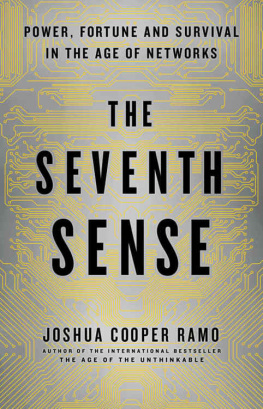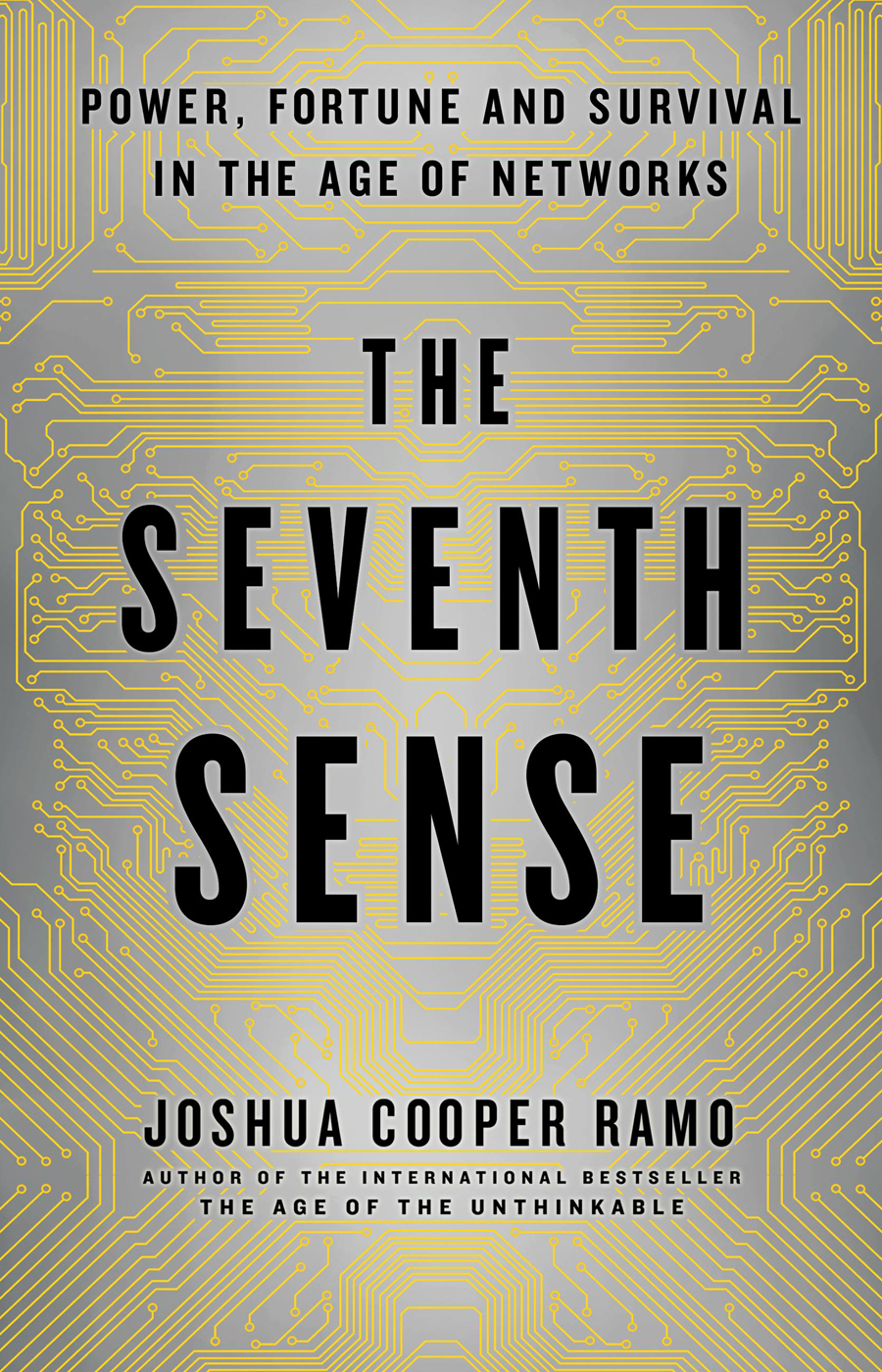Three hundred years ago the Enlightenment and the Scientific Revolution began their pounding work on the foundations of an ancient order. Like twin hammers, these forces demolished most of what once seemed permanent: Kings, alchemists, popes, feudal lordsthey were all undone.
Today, a fresh hammer is cracking our world. The demands of constant, instant connection are tearing at old power arrangements. The formation of networks of all kinds, for trade and biology and finance and warfare and any of a thousand varied needs, is producing new and still dimly understood sources of power. They are eroding the roots of an older order even as a new one is beginning to appear.
That last great shift of the Enlightenment was a violent and wonderful transformation. It produced winners and losers, triggered tragedy and lit fresh triumphs. What lies ahead of us is the same. A new landscape of power is emerging now. This book is its story, and the tale of the instinct that will divide those who master it from those who will be mastered by it.
In which the immortal problems of power are discussed and the possibility of a new instinct is introduced.
1.
One morning in the spring of 1942, a young Chinese scholar named Nan Huai-Chin packed his bags in Chengdu and began walking out of the city. He was headed south and traced a route along the Min River toward EMei Shan, several hundred miles away, deep into Sichuan province. EMei ShanEyebrow Mountainwas and is one of the holiest Buddhist sites in China.
Nan was an unusual young man. At eighteen, he had won a national sword-fighting competition against men twice his age. At twenty-one he had taught politics to Chinas top military officials. A year later he led a thirty-thousand-man army in the mountains of Sichuan. If you look at photos of Nan in those years, more or less at the moment he left Chengdu for the mountains, you see a clean-shaven and soft-skinned man. He is handsome, with electric eyes. You can see, if you know to look, the rough intensity of the man hed become during the anti-Japanese war, a toughness in his stance; some hint too in his grimace of a sword fighters mercilessness. This was long before Nan was regarded as one of the finest living exemplars of the Chinese Buddhist tradition, before he became known as Master Nan. This was before his flight from China with the Kuomintang in 1949, once the Communists came to power, before his decades of wandering and his eventual return to the mainland. All that lies ahead of the man you see in the photo. The man in the photo is young, energetic. He is certain.
In Nans youth, in his early sword-fighting days, he had come to understand that mastering the blade of his sword meant first training his spirit to the highest possible level of sharpness. When attacked or when attacking, the spirit of a truly masterful fighter moves first, theninstants laterthe sword. It was a desire to sharpen that inner blade that had led Nan to EMei Shan and to the study of Chan Buddhism. Chanyou may know it by its Japanese name, Zenis the steeliest of the Buddhist traditions. Its adherents explain that enlightenment in Chan demands concentration intense enough to make and then smash diamonds. It promises, as a result, unmatchable insight into the nature of life.
So, with the anti-Japanese war still smoldering, Nan traveled through his convulsing country and up EMei Mountain, where he found a Chan lamasery near the peak. Once there, during three years of constant effort and meditation and deprivation, he achieved a breakthrough to samadhi, that state of spiritual alignment in which the world and your own soul become as transparent as water. Fear vanishes, as do lust and any real confusion about the deeper currents of life. You become, the priests like to say, as resilient as a mountain spring: No matter what mud is thrown in, it is simply and naturally bubbled away into clarity.
From the EMei temple, with this fresh, clear-running mind, Nan began a quest to sharpen his spirit even further. The journey took him, year after year, from master to master in China, from monastery to university to rural Tibetan huts. These were the Yun Men once said in the midst of such a fight. True wisdom, it was believed, transcended mere talk.
Nan was trying to cultivate in himself deep ways of feeling and sensing the world. During his wandering study, he followed a path that would lead him to enlightenment in more than a dozen different schools of Buddhism. He mastered everything from medicine to calligraphy. His youthful success at sword fighting, it emerged, was a sign of a prodigal genius. He became, in the twentieth century, recognized as one of those crucial human vessels by which ancient tradition is preserved and carried forward for new generations.
After a few years of study, Nan left the mainland for Taiwan. He lived for decades between Taipei and Hong Kong and America. During this time his fame as a teacher grew. In the mid-1990s, as China opened itself to the world again, Nan returned. He had been invited by some of the countrys most powerful families, the children of Communist revolutionaries who were groping for a sense of history and identity. They wanted to absorb the lessons of Chinese culture that Nan had internalized; they hoped to bend them into tools they could use to shape a Chinese future. Might the old habits of the country, with their ancient roots, have something to offer a nation nearly splitting with the energies of modernity? Master Nan agreed to set up a private school. He selected a site on the shores of Lake Tai, in Jiangsu province, not far from Shanghai. He chose the location carefully: The still lake water near his campus was like a giant bath of calming







